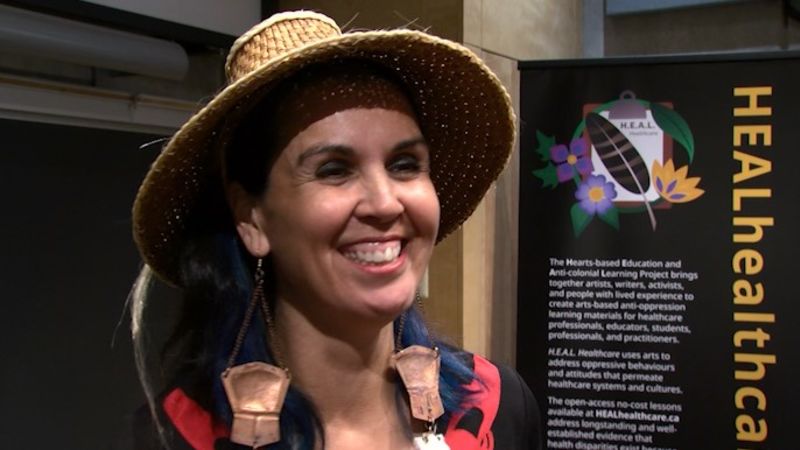
New open-access website by HARC looks at culture and healthcare
PRINCE GEORGE – An organization at UNBC has created a new open-access, arts-based and anti-colonial website that offers a wide range of perspectives on culture. The goal is to open minds to the different cultures that we live in with an eye to greater acceptance.
“You can use it for a journal club, you can use it for your own learning,” explains x’staam Hana’ax (Nicole Halbauer), Manager of Research. “You can learn it as part. You can use it as part of your curriculum in your classroom. It’s absolutely available free for anyone to use. And there are no shortages of topics, right? There are currently 30 topics on the website, everything from a cooking show, poetry echoing body language, painting, sacred paintings, all sorts of things.”
It’s a project that started long ago.
